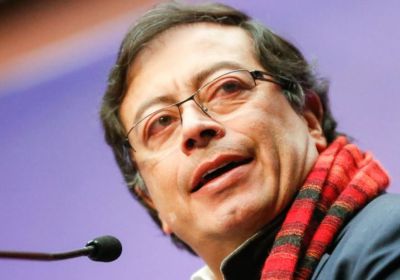Ivan Duque has not even taken office and his government is already in crisis after the president-elect’s political patron, former president Alvaro Uribe, resigned from Congress.
-
-
-
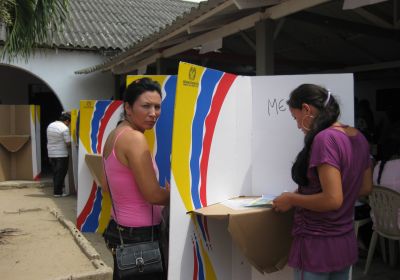
Amid several controversies in the voting process, Colombians went to the polls on March 11 to elect 166 legislators to the House of Representatives and 102 senators.
-
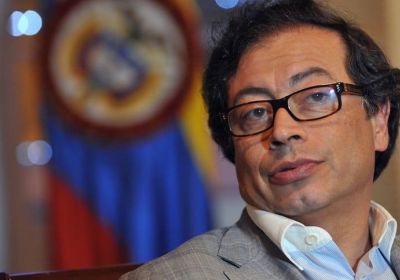
Colombia’s National Police have announced an internal investigation days after the country’s leftist presidential candidate was attacked on his way to a campaign rally on March 2.
-
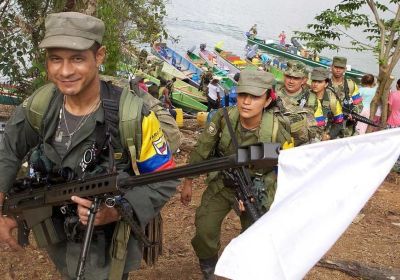
In November 2016, as the Colombian government and the Revolutionary Armed Forces of Colombia (FARC) met in Bogota’s Colon Theatre to sign an agreement – for the second time – to bring the country’s long-running armed conflict to an end, it was clear that peace-building in Colombia faced a myriad of challenges and obstacles.
-
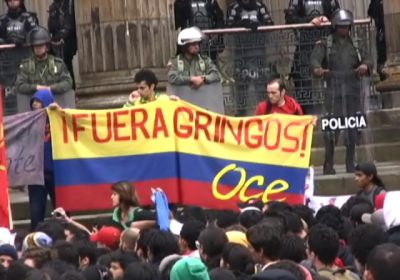 Venezuela’s decision to re-establish diplomatic, political and economic relations with Colombia on August 10 was only possible thanks to a range of circumstances and actions. Venezuela cut ties on July 22 in the face of allegations made by Colombia at the Organisation of American States (OAS) of alleged Venezuelan support for left-wing Colombian guerrillas. The Venezuelan government said the allegations were part of an attempt, backed by the US, to spark a war between the two nations.
Venezuela’s decision to re-establish diplomatic, political and economic relations with Colombia on August 10 was only possible thanks to a range of circumstances and actions. Venezuela cut ties on July 22 in the face of allegations made by Colombia at the Organisation of American States (OAS) of alleged Venezuelan support for left-wing Colombian guerrillas. The Venezuelan government said the allegations were part of an attempt, backed by the US, to spark a war between the two nations. -
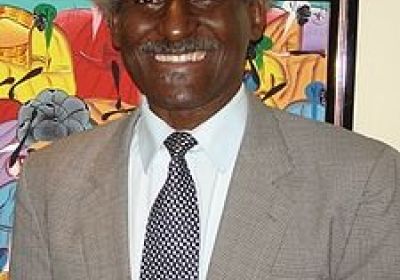 An August 10 summit between recently inaugurated Colombian President Juan Manuel Santos and Venezuelan President Hugo Chavez has lowered tensions in a region that some believe was on the brink of armed confrontation. The situation reached boiling point after Colombia’s July 22 claims in the US-dominated Organisation of American States that Venezuela was “harbouring terrorists”.
An August 10 summit between recently inaugurated Colombian President Juan Manuel Santos and Venezuelan President Hugo Chavez has lowered tensions in a region that some believe was on the brink of armed confrontation. The situation reached boiling point after Colombia’s July 22 claims in the US-dominated Organisation of American States that Venezuela was “harbouring terrorists”. -
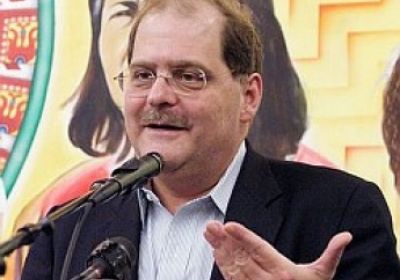 The following open letter was written by Bernardo Alvarez Herrera, Ambassador of the Bolivarian Republic of Venezuela to the US, to the Washington Post editorial board. He wrote in response to a July 30 editorial that accused Venezuela of harbouring Colombian “terrorists”. Alvarez said: “This letter has been made public given that The Washington Post rarely publishes our responses.” * * *
The following open letter was written by Bernardo Alvarez Herrera, Ambassador of the Bolivarian Republic of Venezuela to the US, to the Washington Post editorial board. He wrote in response to a July 30 editorial that accused Venezuela of harbouring Colombian “terrorists”. Alvarez said: “This letter has been made public given that The Washington Post rarely publishes our responses.” * * * -
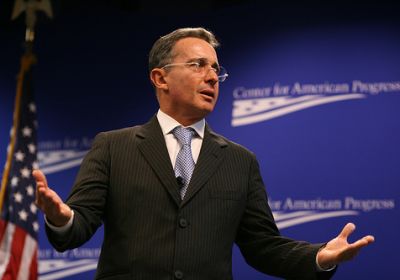 At the beginning of August the Israeli government announced it would cooperate with one out of two international United Nations-sponsored investigation commissions into the May 31 Gaza Freedom Flotilla massacre. UN General Secretary Ban Ki-moon claimed the move was “unprecedented”. The commission is composed of four people, one chosen by Turkey, one chosen by Israel and two chosen from a list provided by Israel. The latter two are former prime minister of New Zealand Geoffrey Palmer, who will be the chair, and outgoing Colombian President Alvaro Uribe, who will serve as vice-chair.
At the beginning of August the Israeli government announced it would cooperate with one out of two international United Nations-sponsored investigation commissions into the May 31 Gaza Freedom Flotilla massacre. UN General Secretary Ban Ki-moon claimed the move was “unprecedented”. The commission is composed of four people, one chosen by Turkey, one chosen by Israel and two chosen from a list provided by Israel. The latter two are former prime minister of New Zealand Geoffrey Palmer, who will be the chair, and outgoing Colombian President Alvaro Uribe, who will serve as vice-chair. -
On August 7, Alvaro Uribe will complete his reign as president of Colombia — eight years of spectacular government criminality and corruption, even by Colombian standards. A brief review of just his second term illustrates this. The Washington Post reported on November 18, 2006 that the Uribe administration was in crisis. Investigations revealed that members of Congress collaborated with right-wing death squads to fix elections and assassinate opponents. That was the tip of the iceberg.
-
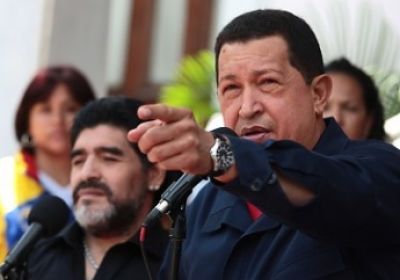 Venezuelan President Hugo Chavez ordered a maximum alert on Venezuela’s border with Colombia after the administration of Colombian President Alvaro Uribe accused the Chavez government of harbouring terrorists and running terrorist training camps on July 22. Uribe’s government gave a shameful presentation before member states of the Organisation of American States (OAS) on July 22. It was similar to former US Secretary of State Colin Powell’s 2003 “weapons of mass destruction” Power Point evidence to the United Nations Security Council to justify the war in Iraq.
Venezuelan President Hugo Chavez ordered a maximum alert on Venezuela’s border with Colombia after the administration of Colombian President Alvaro Uribe accused the Chavez government of harbouring terrorists and running terrorist training camps on July 22. Uribe’s government gave a shameful presentation before member states of the Organisation of American States (OAS) on July 22. It was similar to former US Secretary of State Colin Powell’s 2003 “weapons of mass destruction” Power Point evidence to the United Nations Security Council to justify the war in Iraq.
